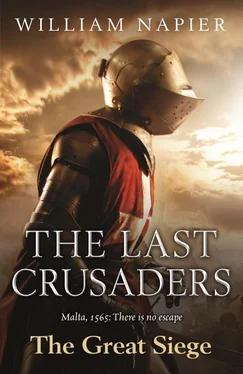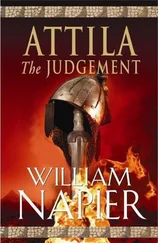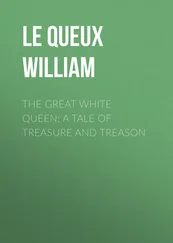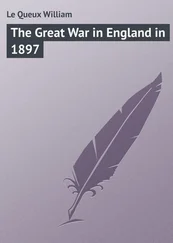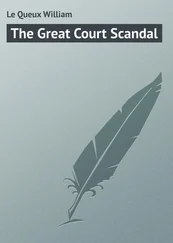William Napier - The Great Siege
Здесь есть возможность читать онлайн «William Napier - The Great Siege» весь текст электронной книги совершенно бесплатно (целиком полную версию без сокращений). В некоторых случаях можно слушать аудио, скачать через торрент в формате fb2 и присутствует краткое содержание. Жанр: Исторические приключения, на английском языке. Описание произведения, (предисловие) а так же отзывы посетителей доступны на портале библиотеки ЛибКат.
- Название:The Great Siege
- Автор:
- Жанр:
- Год:неизвестен
- ISBN:нет данных
- Рейтинг книги:5 / 5. Голосов: 1
-
Избранное:Добавить в избранное
- Отзывы:
-
Ваша оценка:
- 100
- 1
- 2
- 3
- 4
- 5
The Great Siege: краткое содержание, описание и аннотация
Предлагаем к чтению аннотацию, описание, краткое содержание или предисловие (зависит от того, что написал сам автор книги «The Great Siege»). Если вы не нашли необходимую информацию о книге — напишите в комментариях, мы постараемся отыскать её.
The Great Siege — читать онлайн бесплатно полную книгу (весь текст) целиком
Ниже представлен текст книги, разбитый по страницам. Система сохранения места последней прочитанной страницы, позволяет с удобством читать онлайн бесплатно книгу «The Great Siege», без необходимости каждый раз заново искать на чём Вы остановились. Поставьте закладку, и сможете в любой момент перейти на страницу, на которой закончили чтение.
Интервал:
Закладка:
His kingdom stretched from Austria to Egypt, from Algiers to Tartary and the debatable lands beyond. His galleys ruled the seas from the Mediterranean to the Persian Gulf. Only once, in 1529 before the walls of Vienna, had his army been halted. But he was young and foolish then, and had learnt much about the arts of war in the intervening years. Now in his last decade — for a dream of the Prophet had told him he would rule for another ten years yet — he would complete the task appointed to him. He would turn back upon the ancient enemy, Europe, now so weakened and divided. He would at last avenge the shame at Vienna, the insult of the Crusades, and complete the destruction of Christendom.
At the start of next year’s campaigning season, as soon as the first signs of spring appeared, he would march his army to their final victory upon the plains of Hungary, and beyond. Meanwhile the Muslim inhabitants of Spain would rise up in revolt, tying up the greatest of Christian powers in internal civil war, and his allies in Tunis and Algiers, the North African corsairs, would fall upon Sicily, the heel of Italy, and before long, Rome itself …
But first to business, and the afternoon’s tiresome petitions.
All the women departed, being unfit to hear or understand the business of rulership, and all the men except the day’s petitioners and Suleiman’s chief officers.
Today, one petition was different, the news both better and worse.
It was Kustir Agha, Chief of the Black Eunuchs, who approached the throne.
‘Kustir Agha, loyal servant. Speak.’
‘Gracious and Imperial Majesty, may you live a thousand years, and leave a thousand sons.’
Suleiman made a gesture of sharp impatience.
‘Gracious and Imperial Majesty,’ went on Kustir Agha, ‘we have suffered a grievous loss.’ His breathing was tight, and not just owing to his girth. ‘The Sultana , a rich galley, the richest I owned. With its cargo it was worth 80,000 ducats.’
‘Allah afflicts us all with his storms.’
‘Majesty, it was no storm. It was Christian pirates. It was … our ancient enemy. The Knights of St John.’
Suleiman’s eyes hardened. Kustir Agha must tread very carefully indeed.
‘It was the Sultan’s clemency that allowed the Knights to survive and live on after Rhodes,’ said Kustir. ‘An act of clemency in perfect obedience to the teachings of the Prophet, peace be upon him. Yet these Christian savages showed no gratitude. They took to that barren rock of Malta and grew again in power. This latest insult is only one of hundreds. It was the galley of the Chevalier Romegas that committed the insult.’
Suleiman nodded almost imperceptibly. He knew all about this Chevalier Romegas. Perhaps the most dangerous sailor on the White Sea.
‘And with this 80,000 ducats, what will they do?’ Kustir rolled his eyes and held his arms wide. ‘They are celibate men, they have no families, they buy no luxuries. They do not live in fine palaces, nor wear pearls and silks. They live for one thing only. To wage war. With these 80,000 ducats stolen from us, they will only buy new weapons, more powder, build higher the fortifications of their island home. Commit ever greater depredations on your Majesty’s subjects. While the captive master and crew, our Muslim brothers, shiver with prison fever in their rock-cut dungeons, or are driven at the end of a whip to man their galleys.
‘Most Gracious Majesty, there is only one response to such provocation.’
Suleiman allowed a long silence. The deep red sunset of an October evening began to illuminate the slender minarets and high crescents of Istanbul. Then he called forward another man.
‘Mustafa Pasha!’
From the crowd of courtiers and petitioners stepped a tall, lean man with a face darkened by the sun. Old and yet anything but infirm, he strode forward like an arrogant young Janizary, black robe billowing. Others hurriedly made way for him.
Veteran of wars from Persia to Hungary, Mustafa Pasha had been captured once by the Christians, and served an astonishing four years as a galley slave in the fleet of the great Genoese admiral, Andrea Doria. Most galley slaves were lucky to survive a year, before their exhausted bodies were tumbled over the side of the ship for the fish. Four years . Of any man who has served as a galley slave, they said, something hard and hate-filled enters into his soul. And Mustafa Pasha already had a heart and a soul of iron on the day he was born.
He escaped the galleys of Andrea Doria by beating the one-legged bosun to death with his own wooden leg, while still chained to the bench. He then levered off his own manacles with the leg, smashed open the heads of four more overseers, strangled a fifth with his whip, jumped over the side and swam ten miles to the Albanian coast. Forty-eight hours later he was scouring the Adriatic in his own warship. He found the galley he’d served on for those four bitter years and sank it, not rescuing even his former fellow slaves from their chains.
He was said to have killed over two hundred men with his own hands, fathered more than fifty sons, daughters too (though they had never been counted), and amassed a private fortune of more than a million ducats. Now seventy, the same age as the Sultan, he fought with the sword every morning for two hours against the finest Janizaries. Only last month he had sliced off a man’s hand. The Janizary, now retired, displayed his stump at the gates of the city to passers-by, with mingled sorrow and pride, saying that he had lost his hand to none other than Mustafa Pasha. People gazed in awe and gave him silver pennies.
Mustafa Pasha stopped abruptly before the Throne of the Caliph and bowed low. Stood swiftly again. A grey moustache and pointed beard, deep-set eyes, and the great hooked nose of a bird of prey, so that many whispered that Arab blood ran in him. He did not look directly at the Sultan, naturally, but he held his head high and haughty nonetheless. His face was deeply lined, and there were sword cuts and gunpowder burns visible on his strong, thick-veined right hand.
‘You are keen to share with us your view of the Knights Hospitaller?’
Mustafa needed no further encouragement. Nor did he trouble with Kustir Agha’s grandiloquent flatteries. His voice sounded deep and harsh, filling the great audience chamber.
‘The Knights we know of old. And this accursed rock of Malta, their new base, stands between you and your rightful possessions. From this rock with its great harbour — the finest in all the White Sea — their lean galleys come out like wolves to attack our ships, enslave our brothers, steal our cargoes.
‘Your Majesty plans the conquest of Christendom. But you will do nothing unless you first capture Malta, and exterminate once and for all these dogs of St John. It is time to wipe the Knights off the face of the earth, as you would wipe out the rats in your barn.’
There was an uneasy silence. Mustapha had come perilously close to criticizing Suleiman’s previous clemency. But if anyone was permitted such lèse majesté, it was this ancient warrior.
Suleiman stroked his trim beard. ‘Tell us more.’
Mustafa gestured widely, his robe filling like a sail. ‘This barren rock is the key to the western Mediterranean. You cannot mount any naval operations beyond it with safety.’
‘Our galleys have sailed many a time beyond Malta and returned.’
‘Many more have never returned. Like Kustir Agha’s precious, though under-defended ship,’ his lip curled, ‘the Sultana .’
Kustir Agha blinked furiously but said nothing. Mustafa Pasha had a foul temper. None crossed him, all meekly accepted his sneers.
‘The island of Malta dominates those narrow straits between Sicily and Africa, only sixty miles from coast to coast. An Ottoman galley might pass through, but an entire armada, such as will be needed for the final conquest of Christendom — no. Those sea wolves would wreak havoc upon us. Their flagship, the Great Carrack , is the most powerful warship in the White Sea. With my own eyes I have seen it. Alone it could destroy a dozen of our galleys.
Читать дальшеИнтервал:
Закладка:
Похожие книги на «The Great Siege»
Представляем Вашему вниманию похожие книги на «The Great Siege» списком для выбора. Мы отобрали схожую по названию и смыслу литературу в надежде предоставить читателям больше вариантов отыскать новые, интересные, ещё непрочитанные произведения.
Обсуждение, отзывы о книге «The Great Siege» и просто собственные мнения читателей. Оставьте ваши комментарии, напишите, что Вы думаете о произведении, его смысле или главных героях. Укажите что конкретно понравилось, а что нет, и почему Вы так считаете.
